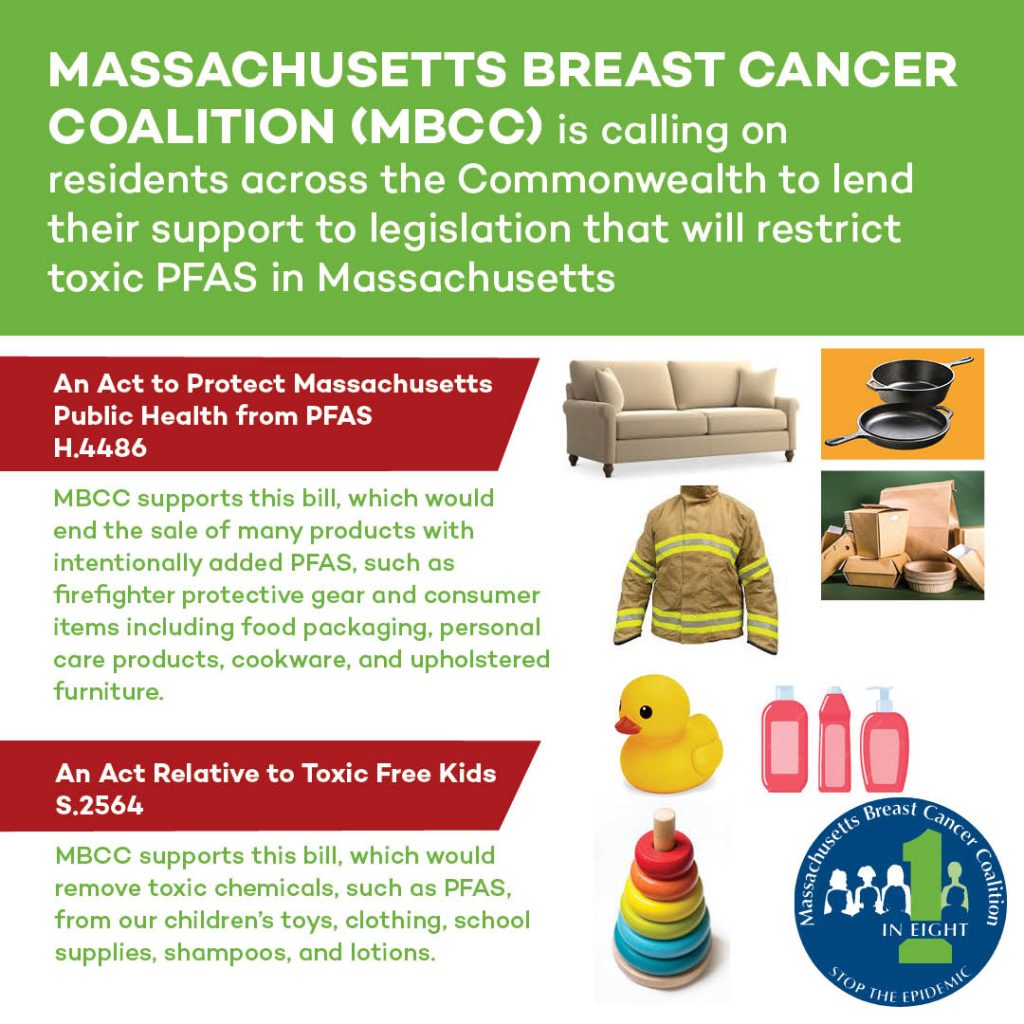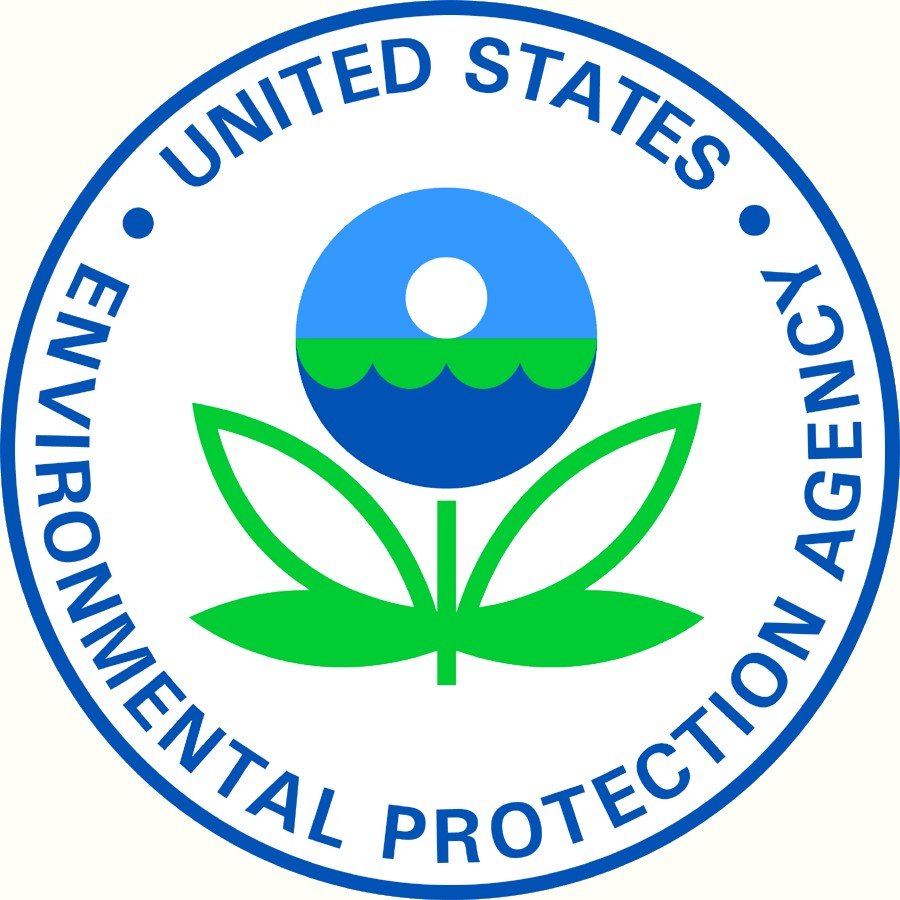PRESS RELEASE: FOR IMMEDIATE RELEASE
CONTACT: Cheryl Osimo, Executive Director
508-246-3047
EPA Establishes Legal Limits for PFAS in Drinking Water
MBCC Urges Support for Bills to Address PFAS in Massachusetts
On Wednesday, April 10, 2024, the U.S. Environmental Protection Agency (EPA) finalized legally enforceable drinking water standards on per-and polyfluoroalkyl substances (PFAS).
According to the EPA, the new rule sets limits on six PFAS found in drinking water. A maximum contaminant level (MCL) standard for PFOA and PFOS (two types of PFAS commonly used in food packaging and firefighting foams) was set at 4.0 parts per trillion. The EPA will also regulate other types of PFAS — PFNA, PFHxS, PFBS and GenX — and their mixtures with an enforceable MCL standard of 10 parts per trillion.
PFAS are a class of synthetic manmade compounds widely used in industrial and consumer products due to their unique chemical properties. Commonly known as “forever chemicals,” PFAS have strong carbon-fluorine bonds that make them extremely difficult to break down and remove, resulting in bioaccumulation in the environment and accumulation within our bodies once consumed.
The pervasive reach of PFAS contamination is evident worldwide, tainting drinking water, surface water, and groundwater. In Massachusetts alone, 96 cities and towns grapple with PFAS pollution in their public water systems, presenting a pressing challenge. The associated health risks, including heightened cancer susceptibility, developmental issues in infants, and compromised kidney, liver, and immune function, underscore the urgency of addressing this issue.
Cheryl Osimo, Executive Director of Massachusetts Breast Cancer Coalition (MBCC), says, “These new regulations represent a positive step forward. Building on this progress, we urge Massachusetts citizens to take action and reach out to their legislators to support legislation that would prioritize the health and well-being of all.”
Dr. Laurel Schaider, Senior Scientist at Silent Spring Institute, says, “EPA’s new drinking water standards will go a long way towards reducing exposures to PFAS in drinking water that come from existing environmental contamination. It’s also important to turn off the tap on the production of new PFAS by restricting their use in products.”
In a concerted effort to safeguard the health of Massachusetts residents from ongoing PFAS contamination, MBCC advocates for the swift passage of pending legislation. This legislation aims to eliminate PFAS from a range of consumer products, including those intended for children, and to establish comprehensive regulations for PFAS in the state’s environment.
An Act to Protect Massachusetts Public Health from PFAS (H.4486) aims to regulate and monitor PFAS in Massachusetts. It establishes a PFAS Remediation Trust Fund, amends permits for PFAS monitoring, and plans to phase out PFAS-containing sludge. The bill also requires the state’s Department of Environmental Protection to set ambient air PFAS standards. Additionally, H.4486 mandates a multilingual public awareness campaign on PFAS risks, prohibits the sale of PFAS-containing products, and demands product registration and comprehensive PFAS information from manufacturers. Enforcement measures and progress reporting are also included in the bill.
H.4486 also makes headway with the phase out of PFAS in firefighters’ personal protective equipment and firefighting foam.
Captain Nicole Stanley, a firefighter paramedic at the Mashpee Fire & Rescue Department and a woman diagnosed with breast cancer, states, “I am so pleased by the efforts being made to remove PFAS in firefighter PPE and firefighting foams. I greatly hope that Massachusetts citizens and legislators can come together to get this important legislation [H.4486] passed for the safety of the brave people dedicated to this occupation. I am so appreciative to MBCC for the important work done everyday.”
An Act Relative to Toxic-Free Kids (S.2564) would prohibit the sale of children’s products or components containing regulated PFAS. It requires the Department of Environmental Protection to maintain a list of toxic chemicals of concern in children’s products. The legislation mandates manufacturers to notify the Department of chemicals in their products and provide information about these chemicals. It also requires the Department to maintain a list of high priority chemicals in children’s products and establish procedures for the safe use of alternatives.
To deepen your understanding of PFAS and their associated health risks, access free resources aimed at reducing toxic exposure, and discover tools for locating and contacting your legislator to voice support for H.4486 and S.2564, visit mbcc.org.

Click the buttons below for more information on the two bills, as well as resources to find and contact your legislators:

